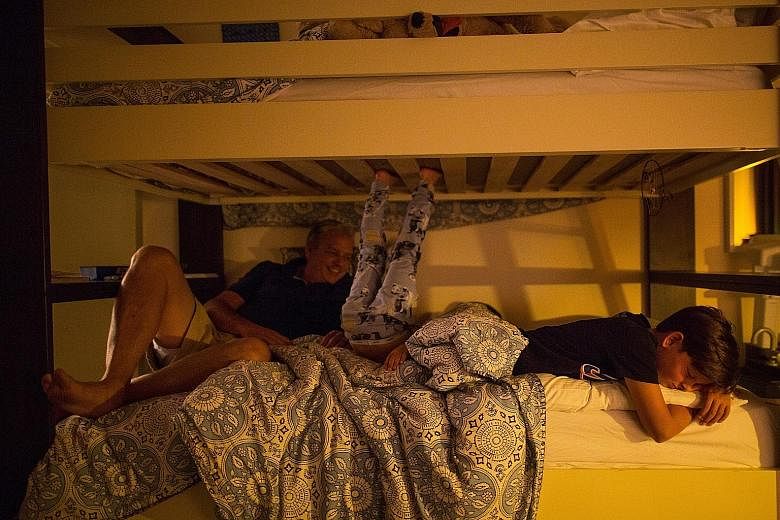NEW YORK • Like many expecting parents, Mrs Tracy Mizraki Kraft worried about how her newborn would sleep. So she paid attention when her doctor handed her a light bulb that he said would help her son do just that.
The small amber bulb, called Sleepy Baby, seemed to work well, she said, creating a soothing environment for Leo, now 16 months, as he drifted off to sleep.
It is part of a technological revolution coming to homes, offices, hotels and schools through lighting designed to undo the ill effects of artificial light - both overhead and on screen - and help regulate sleep, alertness and even people's moods.
"Lighting is really not about a fixture in the ceiling any more," said Ms Mariana Figueiro, who leads light and health research at the Lighting Research Centre of Rensselaer Polytechnic Institute. "It's about delivering individualised light treatments to people."
Scientists have understood for years that different levels and colours of light can have powerful biological effects on humans. But that concept has been applied only with expensive bulbs - costing as much as US$300,000 (S$424,000) - for speciality applications like mimicking the 24-hour cycle for astronauts or treating jaundice in newborns.
Now, with lighting technology, especially LEDs, becoming more sophisticated and less expensive, companies are developing so- called biological lighting for ordinary consumers. The Lighting Science Group makes Sleepy Baby and is among the companies that are most devoted to the growing market for lighting to enhance rest or alertness, with bulbs like Good Night, and Awake and Alert.
But other companies, from start-ups to the biggest lighting manufacturers, have products promising similar results.
Companies are also focusing on health applications for lighting, said Dr Milos Todorovic, who leads bioelectronics research at Lux Research.
Among these are changing a person's mood and affecting physical processes inside the body, including using light to enhance collagen regeneration to help heal wounds.
It is all part of a goal - to undo, in effect, the damage that regular lighting has done to the body's natural rhythms. The new consumer-oriented bulbs, for example, are designed to regulate the body's basic need to rest and wake up by stimulating receptors in the eyes that signal to the brain when it is time for bed and when it is time to go about the activities of the day.
What consumers will find reasonable will depend on their priorities, as the bulbs come at a premium. A starter pack of Philips' Hue, which includes three bulbs and a hub that connects to a Wi-Fi router, costs close to US$200, with single bulbs costing about US$60.
General Electric's Align AM and PM bulbs cost close to US$25 and US$20, respectively. The Lighting Science Group is fine-tuning its biological lighting line and expects to bring down prices. For now, though, the Good Night costs about US$60, while the Awake and Alert runs around US$70. But with Sleepy Baby, which costs about US$30, the company may have hit upon the ideal customers: parents desperate for, well, a sleepy baby.
Mr Chip Brian, a co-owner of a contracting firm, said that when he put the bulb in his sons' room, his four-year-old, an "active night kid", suddenly slept through until morning.
The change was so extreme that his wife thought the boy might be sick and went to check on him,
Mr Brian said. "I was sort of amazed."
NEW YORK TIMES

